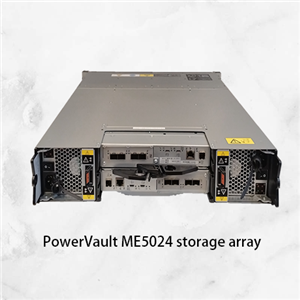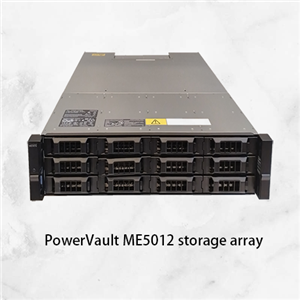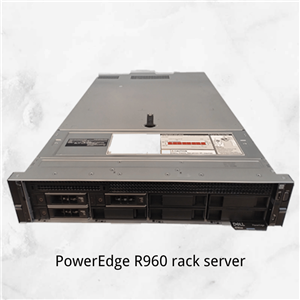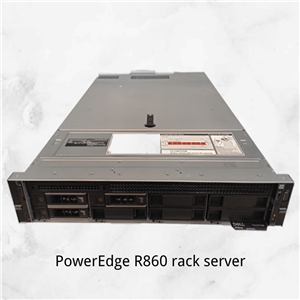Dell's Application in Trillion-Parameter Model Inference: Comparing General-Purpose Servers and AI Chips
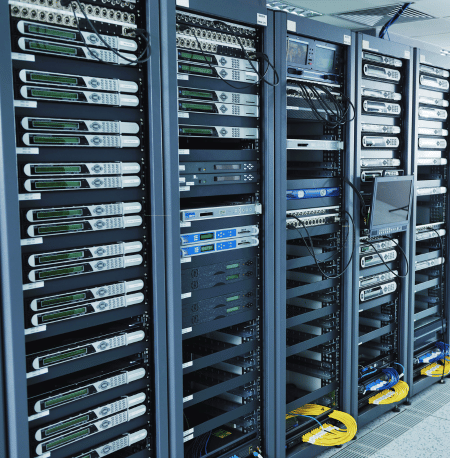
As artificial intelligence technology advances rapidly, handling trillion-parameter scale models has become a significant challenge in the field of computing. As a global leader in technology solutions, Dell's products demonstrate the advantages of general-purpose servers over AI chips in this domain. This article explores Dell's products in trillion-parameter model inference, compares general-purpose servers with AI chips, and highlights the far-reaching impact of this technological breakthrough on the industry.
1. Comparison of Dell's General-Purpose Servers and AI Chips: Advantages and Challenges
1.1 Computing Power of AI Chips
In handling large-scale AI models, AI chips like the NVIDIA A100 GPU excel with their powerful parallel computing capabilities. The A100 GPU offers up to 312 TFLOPS of computing power and is specifically designed for deep learning tasks. However, the high cost and limited memory capacity of these specialized chips restrict their widespread adoption.
1.2 Dell’s Economic Advantage with General-Purpose Servers
Dell's PowerEdge R7525 general-purpose server showcases significant advantages in cost-effectiveness. Compared to high-end AI chips, general-purpose servers generally cost 80% less in procurement and maintenance. For instance, the PowerEdge R7525 server utilizes AMD EPYC processors to efficiently handle large model inference without requiring additional AI acceleration cards. This makes general-purpose servers an attractive option for budget-conscious enterprises and traditional industries.
1.3 Memory Capacity and Compatibility
Dell's PowerEdge R7525 server supports up to 4TB of DDR4 memory, far exceeding the memory capacity of many AI chips. This large memory capacity meets the demands of trillion-parameter models and provides greater compatibility. General-purpose servers support various AI frameworks and development tools, such as TensorFlow and PyTorch, offering higher flexibility and compatibility for enterprises.
2. Practical Applications of Large Models: Dell’s Breakthrough
2.1 Challenges of Trillion-Parameter Models
Handling trillion-parameter models presents substantial challenges in computing resources. For example, the inference process of these models requires extensive computation, memory, and communication bandwidth. Dell's PowerEdge R7525 server effectively addresses these challenges with its high-performance processors and large memory configuration.
2.2 Real-World Application Cases
The Dell PowerEdge R7525 server demonstrates its potential for real-world applications in handling trillion-parameter models. By optimizing computing resources and memory configurations, this server supports large-scale AI model inference efficiently, providing new possibilities for enterprises to achieve high-performance AI applications without specialized AI chips.
3. Importance of Memory Capacity: Supporting Large-Scale AI Models
3.1 Analysis of Memory Requirements
Trillion-parameter models require substantial memory capacity. Estimates indicate that such models typically need between 200GB and 300GB of GPU memory. Dell’s PowerEdge R7525 server provides up to 4TB of memory, greatly surpassing the current GPU memory capacities and offering robust support for deploying large-scale AI models.
3.2 Advantages of General-Purpose Servers
The large memory configuration of Dell’s PowerEdge R7525 server ensures that it can handle ultra-large AI models without memory constraints, eliminating performance bottlenecks due to insufficient memory. This memory advantage guarantees sufficient space for computation and storage, improving the efficiency of model operations.
4. Future Directions of AI Computing: Expansion to General Platforms
4.1 Evolution of AI Computing
AI computing is expanding from specialized devices to general computing platforms. Dell’s general-purpose servers, such as the PowerEdge R7525, exemplify this trend, enabling broader application of AI technology in various scenarios. This shift promotes the widespread adoption of computing technology and lowers the barriers to AI technology application.
4.2 Popularization of Computing Technology
The use of general-purpose servers facilitates the integration of AI technology into more industries and application scenarios. Through Dell’s PowerEdge R7525 server, enterprises can apply AI technology at a lower cost, driving intelligent development and technology proliferation.

5. Innovations in Quantization Technology: Dell’s Technical Breakthrough
5.1 NF4 Quantization Technology
Dell’s solutions incorporate NF4 (4-bit NormalFloat) quantization technology to optimize computing performance without compromising model accuracy. NF4 quantization compresses model parameters into smaller bit sizes, significantly reducing memory usage and computational resource requirements. This technology is particularly suited for data with approximately normal distributions, which aligns well with the weight distributions of large models.
5.2 Nested Quantization Technology
Additionally, nested quantization technology further reduces storage space requirements by compressing quantization parameters to FP8 precision. Through NF4 and nested quantization, Dell’s server products achieve more efficient model performance and resource utilization, with each weight occupying only half a byte, reducing memory usage to a quarter of its original capacity.
6. Economic Efficiency and Practicality: Lowering AI Technology Barriers
6.1 Cost Savings
Dell’s general-purpose servers, like the PowerEdge R7525, offer significant economic benefits. Compared to specialized AI chips, these servers have lower procurement and maintenance costs, making the adoption of AI technology more feasible. This cost savings includes both equipment acquisition and integration with existing systems, minimizing migration and adaptation efforts.
6.2 Advantages of System Integration
The compatibility of general-purpose servers allows for easier integration of AI technology with existing systems, avoiding the migration and adaptation issues associated with specialized AI servers. This system integration advantage enables enterprises to rapidly implement AI technology, further lowering technological barriers.
7. Necessity of Technological Integration: Synergistic Innovation
7.1 Importance of Synergistic Innovation
Efficient large-model inference relies on synergistic innovation between hardware and software systems. Dell’s integration of advanced hardware with optimized software systems enables efficient trillion-parameter model inference, highlighting the critical role of technological integration in high-performance computing.
7.2 Achieving Efficient Inference
Through synergistic optimization of hardware and software, Dell’s PowerEdge R7525 server excels in efficient inference. This technological integration ensures rapid and accurate model inference, providing strong support for large-scale AI applications.

8. Enhanced Computing Capability: The Role of Dell’s Next-Generation CPUs
8.1 AI Acceleration Instruction Sets
Dell’s server products, such as the PowerEdge R7525, are equipped with next-generation AMD EPYC processors that support AI acceleration instruction sets (like AVX-512). These technologies significantly enhance the AI computing capabilities of the servers, making them better suited for the computational demands of large models.
8.2 Improved Computing Performance
For example, the PowerEdge R7525 server’s computing performance is exceptional in handling AI tasks, meeting the requirements for trillion-parameter model inference. This enhancement in computing capability ensures that Dell’s general-purpose servers perform well in AI computing, supporting large-scale model inference effectively.
9. Efficiency of AI Inference: Optimizing Computation and Bandwidth Utilization
9.1 Optimizing Parallel Computation
To improve the efficiency of trillion-parameter model inference, Dell has optimized computing resources and bandwidth utilization. By distributing model computation tasks across multiple processors and utilizing efficient memory and bandwidth configurations, the server achieves accelerated computation, reducing processing delays.
9.2 Enhanced Bandwidth Utilization
Dell’s PowerEdge R7525 server features high-speed memory bandwidth, supporting DDR4 memory up to 3200 MHz, which improves bandwidth utilization. This advanced technology supports extensive parallel computation tasks and ensures efficient data transfer during trillion-parameter model inference.
10. Industry Impact: Driving Intelligent Upgrades
10.1 Impact of Technological Breakthroughs
Dell’s technological breakthroughs are poised to revolutionize how traditional industries adopt and utilize AI technology. The successful application of general-purpose servers enables AI technology to achieve intelligent upgrades in various industries, expanding its reach and impact.
10.2 A New Starting Point for Enterprises
This breakthrough offers enterprises a new starting point for AI applications. With Dell’s PowerEdge R7525 server, companies can apply AI technology at a lower cost, driving intelligent development. Looking ahead, Dell will continue to focus on advancements in computing power, algorithms, and data, achieving more system breakthroughs and integrating AI technology deeper into various industries.
Conclusion
Dell’s PowerEdge R7525 general-purpose server showcases the powerful potential of general-purpose servers in trillion-parameter model inference. Through advantages in cost, memory capacity, and technological integration, Dell’s products offer a new path for AI technology adoption. As technology progresses, Dell will continue to advance AI computing, providing efficient and economical solutions for enterprises and further integrating AI technology across industries.

